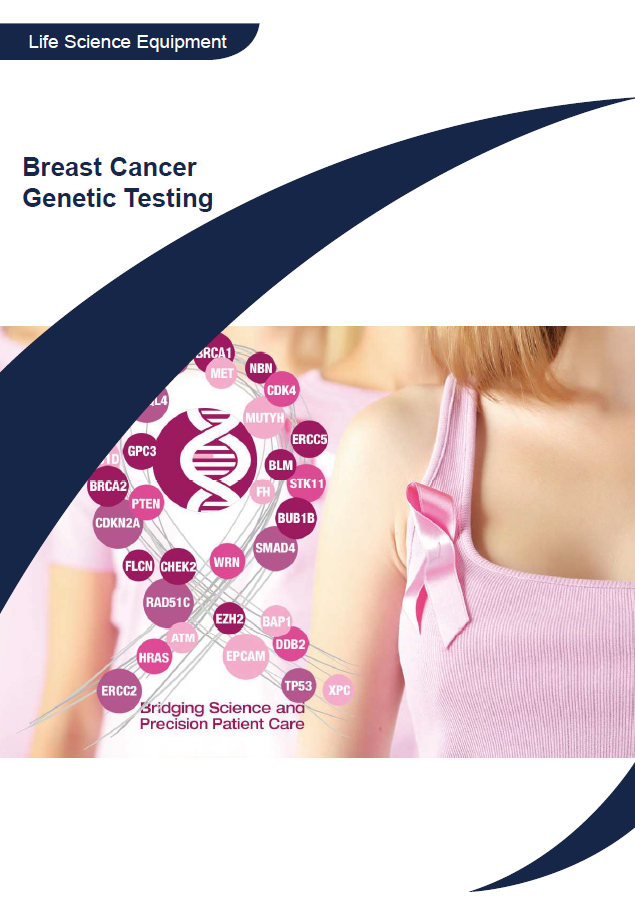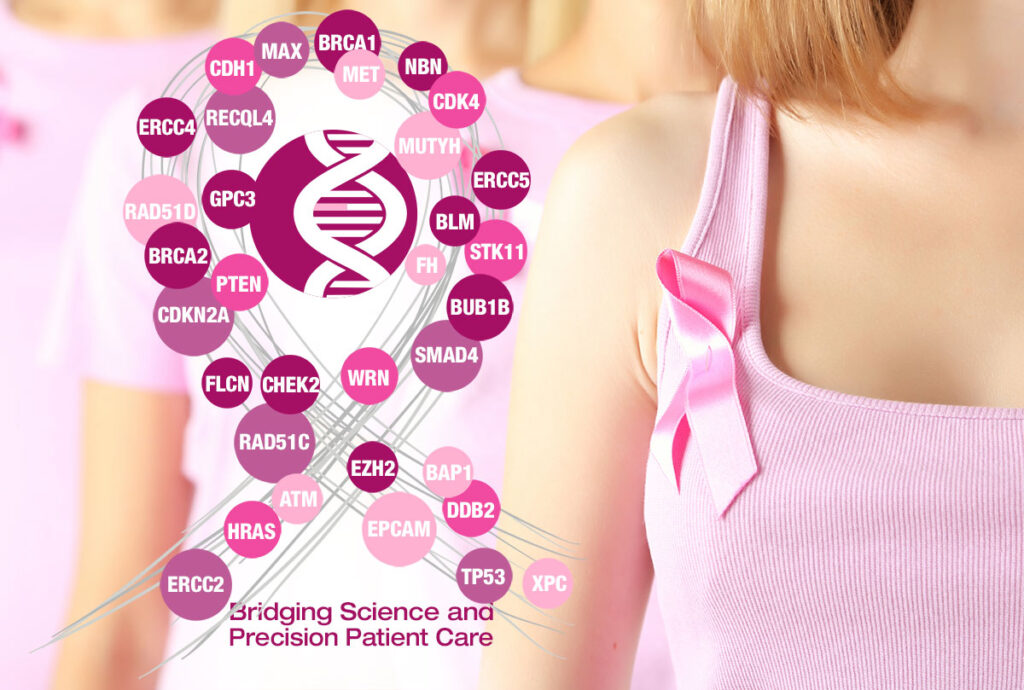Introduction:
In 2020, breast cancer surpassed lung cancer as the most diagnosed cancer worldwide, affecting 2.3 million women and claiming the lives of 685,000. With these alarming statistics, it’s crucial to understand the importance of early detection and personalized treatment. Genetic screening for breast cancer is a powerful tool that can significantly impact patients’ lives. In this blog post, we’ll explore the significance of breast cancer genetic screening, its various methods, and why it’s essential for patients, doctors, and even dealers.
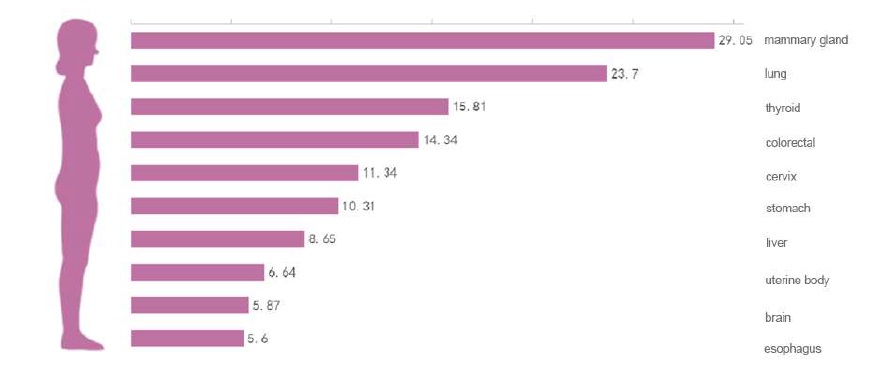
Understanding Genetic Screening:
Genetic screening is a process that analyzes DNA through blood, body fluids, or cells. It provides valuable insights into an individual’s genetic makeup, helping them understand their risk of diseases, improve their lifestyle, and potentially prevent or delay the onset of illnesses.
1. Classification of Breast Cancer Screening Methods:
Breast cancer screening methods can be classified into several categories, including mammography, ultrasound, MRI, and genetic screening. While the former are well-known, genetic screening focuses on identifying genetic mutations related to breast cancer.
2. Genetic Testing for Hereditary Tumors:
Hereditary tumors are caused by genetic mutations inherited at birth and account for 5-10% of all tumors. Genetic testing allows healthy individuals to assess their cancer risk based on their genetic makeup. Patients already diagnosed with cancer can undergo genetic testing to determine if their cancer is hereditary.
3. Chemotherapy Medication Guidance and Testing:
Malignant tumors are highly diverse at the molecular level, making targeted drug therapy possible through genetic screening. Standardized targeted therapy, combined with chemotherapy, significantly reduces the risk of breast cancer recurrence and death.
4. Tumor Heterogeneity Detection:
Tumor cells exhibit genetic variations when they divide, leading to differences in their response to drugs. Heterogeneous tumors are challenging to treat because they constantly evolve. Genetic screening helps clinicians adapt treatment strategies to match the tumor’s changing profile.
Why Breast Cancer Requires Genetic Testing:
Breast cancer patients can benefit from genetic testing in two key ways:
1. Guide Chemotherapy and Personalized Medication:
Targeted therapy significantly improves the survival rates of breast cancer patients, especially those with HER2-positive breast cancer. Genetic screening also identifies other gene mutations, offering additional treatment options.
2. Genetic Screening:
Approximately 10% of breast cancer cases result from pathogenic germline mutations in known breast cancer susceptibility genes. Carriers of these mutations have access to specialized clinical treatments and interventions.
When Is Genetic Testing Necessary?
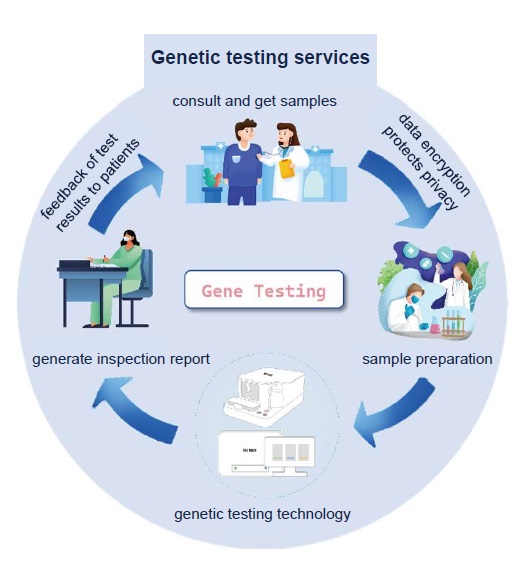
Genetic testing is recommended for the following scenarios:
– Cancer patients undergoing treatment, particularly those with specific genetic mutation targets.
– Patients experiencing drug resistance after targeted therapy.
– Individuals with a family history of cancer, as they may be at higher risk.
– Normal individuals interested in assessing their cancer risk based on their genetic makeup.
PIK3CA and HER2 Genetic Screening:
PIK3CA and HER2 are crucial genes in breast cancer and other cancers. Understanding their mutations can lead to targeted treatment options.
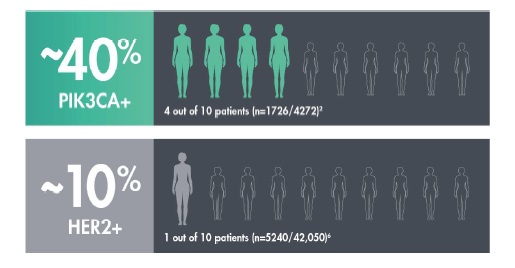
– PIK3CA Gene: Mutations in PIK3CA can be found in various solid tumors, including breast cancer. Targeted drugs like Alpelisib are available for specific subsets of breast cancer patients.
– HER2 Gene: HER2 is linked to breast cancer, stomach cancer, colon cancer, and more. Targeted drugs like Trastuzumab can significantly improve patient outcomes in HER2-positive breast cancer.
Conclusion:
Breast cancer genetic screening is a powerful tool that enables personalized treatment and improved patient outcomes. It empowers patients to take control of their health and provides doctors with valuable information to deliver targeted therapy. Whether you’re a patient, doctor, or dealer, understanding the significance of genetic screening can make a significant impact on the fight against breast cancer.
If you’d like to dive deeper into this topic and access educational materials, please leave your contact information, and we’ll provide you with valuable resources to expand your knowledge about breast cancer genetic screening. Together, we can make a difference in the fight against this prevalent and life-threatening disease.
Download:
